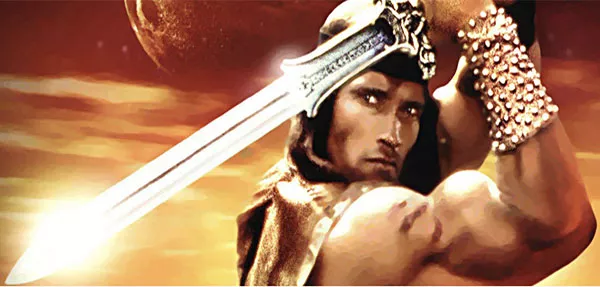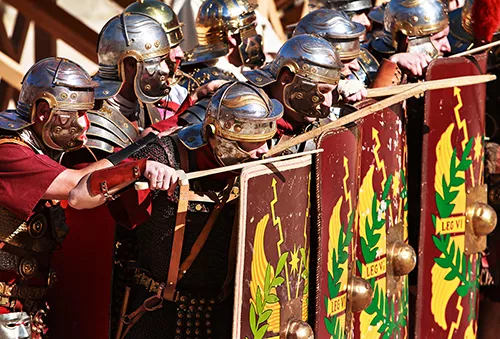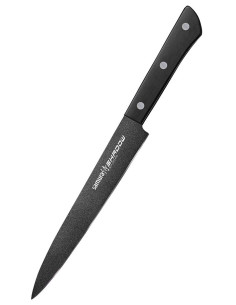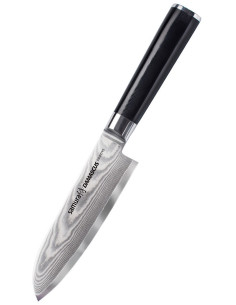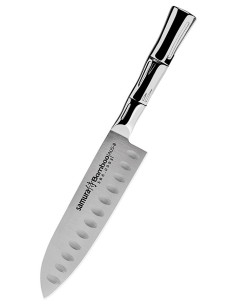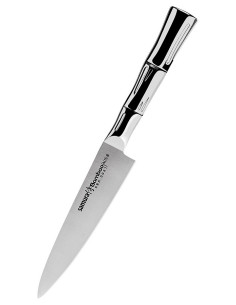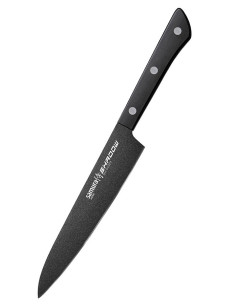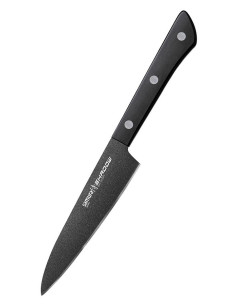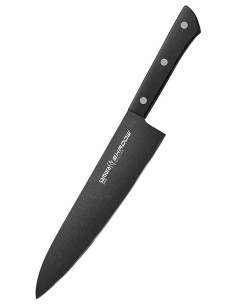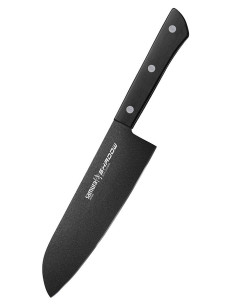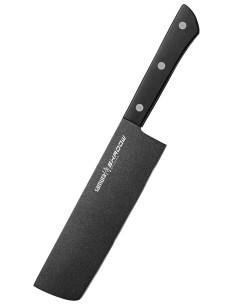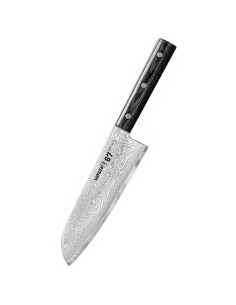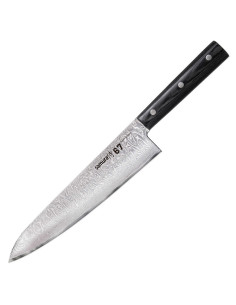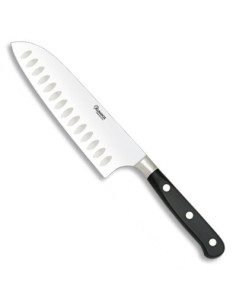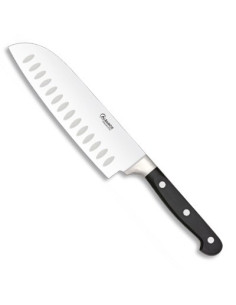japanese knives
Chef Ha Teikoku Kitchen Knife, Damascus Steel blade (29.5 cm.)
Chef Ha Teikoku Kitchen Knife, Damascus Steel blade (37 cm.)
Ha Teikoku Slicing Kitchen Knife, Damascus Steel blade (33 cm.)
Macheta Kitchen Knife, Ha Teikoku, Damascus Steel blade (32 cm.)
Santoku Ha Teikoku Kitchen Knife, Damascus Steel blade (31.5 cm.)
Small GYUTO kitchen knife, G10 Damascus handle from Tokisu (32.50 cm.)
The Tradition of Japanese Knives
Japanese knives are globally recognized for their craftsmanship and excellent performance. These tools are not just kitchen utensils; they are an extension of the chef's skill and passion. Since ancient times, artisans have perfected the art of forging, passing their knowledge from generation to generation. The combination of traditional techniques and high-quality materials produces knives that are both functional and aesthetically stunning.
Japanese culture also values precision and detail, aspects that are reflected in every knife. For example, knives like the Gyuto and Santoku feature specific shapes that facilitate work in the kitchen. The ergonomics and balance of these knives allow for efficient and safe cutting, making cooking a pleasurable and artistic experience.
Types of Knives and Their Uses
There are multiple types of Japanese knives, each designed for a specific purpose. Knives like the Gyuto are ideal for cutting meat and fish, while Santoku knives are versatile for chopping, slicing, and dicing. The Deba knife, on the other hand, is specially designed for filleting fish, providing unmatched precision thanks to its thick, sharp blade.
Meanwhile, Nakiri knives are primarily used for cutting vegetables, and their rectangular shape allows for precise cuts. Each type of knife has its own unique characteristics that make them perfect for different tasks, highlighting the importance of having the right tool in the kitchen.
Materials and Construction of Knives
One of the standout aspects of Japanese knives is their high-quality construction. Most of these knives are made from Damascus steel, which is known not only for its beauty but also for its durability and edge retention. The forging process of Damascus steel provides a unique combination of hardness and flexibility, making these knives ideal for demanding cutting tasks.
Additionally, the choice of handle is crucial. Handles made from materials like G10 or Staypak ensure a comfortable grip, preventing slippage while working. Attention to detail in material selection and manufacturing techniques ensures that each knife is not only an effective tool but also a work of art.
Caring for and Maintaining Japanese Knives
Properly caring for Japanese knives is essential to preserve their quality and performance. To prolong the lifespan of these utensils, it is recommended to wash them by hand and dry them immediately after use. Avoiding the use of dishwashers is paramount, as temperature and detergents can damage the steel and handle.
Sharpening is also essential to keep these knives in optimal condition. It is recommended to use sharpening stones or an appropriate manual sharpening system, as it ensures that the blade geometry is respected. With proper care, a Japanese knife can last a lifetime and become an invaluable culinary inheritance.
The Culinary Experience with Japanese Knives
Using a Japanese knife is not just about functionality; it is about enjoying the art of cooking in a deeper way. The precision and control that these knives offer transform food preparation into a more enjoyable experience. Cooking with a quality knife inspires confidence and helps chefs, both professional and amateur, to explore new recipes and cutting techniques.
Moreover, the aesthetics of Japanese knives, with their elegant design and finish, adds an element of beauty to the kitchen. Every cut becomes an act of precision and creativity, making cooking not just a race against time but also a celebration of culinary culture. Working with these knives can make any preparation feel special.
What types of Japanese knives exist?
There are several types of Japanese knives, each specialized for different tasks. The most common are the Gyuto, ideal for meats; the Santoku, versatile for various ingredients; and the Deba, specialized in filleting fish. Each is chosen according to the culinary technique one wishes to practice, improving the quality of the dishes.
What makes Damascus steel knives so special?Damascus steel is valued for its strength and edge retention capabilities. The multi-layer forging technique not only provides a beautiful appearance but also enhances functionality, making these knives ideal for precision cuts. Moreover, they are less prone to corrosion and wear, making them an excellent long-term investment.
What care should I take with a Japanese knife?It is essential to wash Japanese knives by hand and dry them immediately to prevent corrosion. Additionally, it is recommended not to use a dishwasher. Regularly sharpening the edge with appropriate stones is also important to ensure precise cuts and prolong the knife's lifespan.
Are Japanese knives suitable for beginners?Japanese knives are excellent for any skill level, from beginners to experienced chefs. However, it's important to choose a model suitable for the user's skills. A well-balanced, high-quality knife can make learning and practicing in the kitchen more enjoyable and effective.
Are Japanese knives more expensive than other types of knives?Japanese knives often have a higher price point than some mass-produced knives due to their quality and the handmade manufacturing process in many cases. However, with proper care, their durability and performance make their investment justifiable, as they can last a lifetime and be truly functional in the kitchen.
What handle is best for a Japanese knife?The choice of handle depends on the user's personal preferences and the intended use of the knife. G10 handles offer great durability and a good grip, while wooden ones provide a classic aesthetic and unique comfort. Trying different types and styles is key to finding what best suits each person.
What type of sharpener should I use for Japanese knives?Japanese knife sharpeners should be chosen carefully. It is advisable to use specific sharpening stones, as they help maintain the geometry and edge of the knife. Additionally, there are electric sharpeners that are suitable as long as they have a design that respects the angle of the knife to avoid damaging it.
Explore our wide selection of Japanese knives designed for all skill levels. Enhance your culinary experience and enjoy the art of cooking with quality tools that will transform you into an exceptional chef. Visit our online store now!











